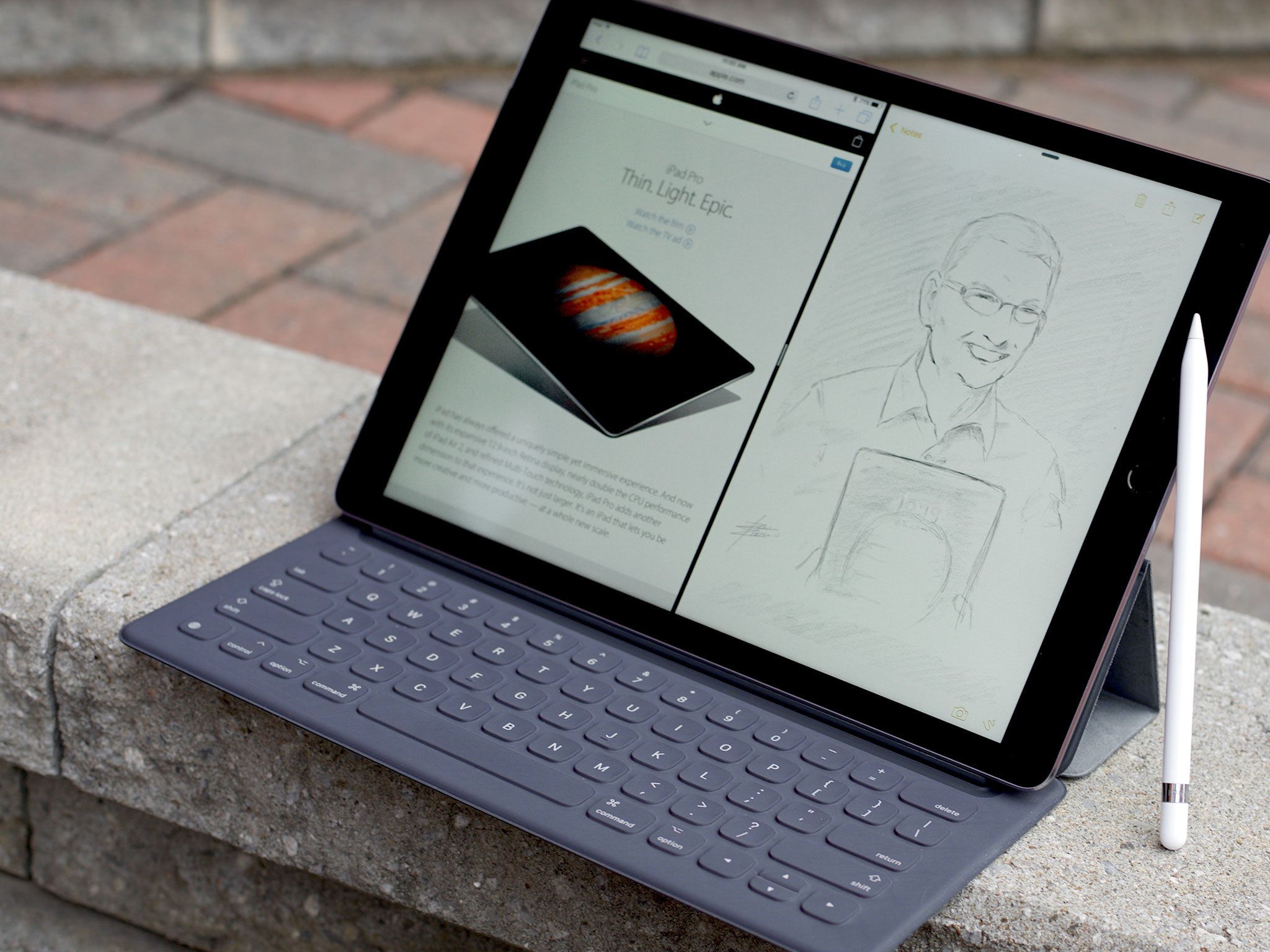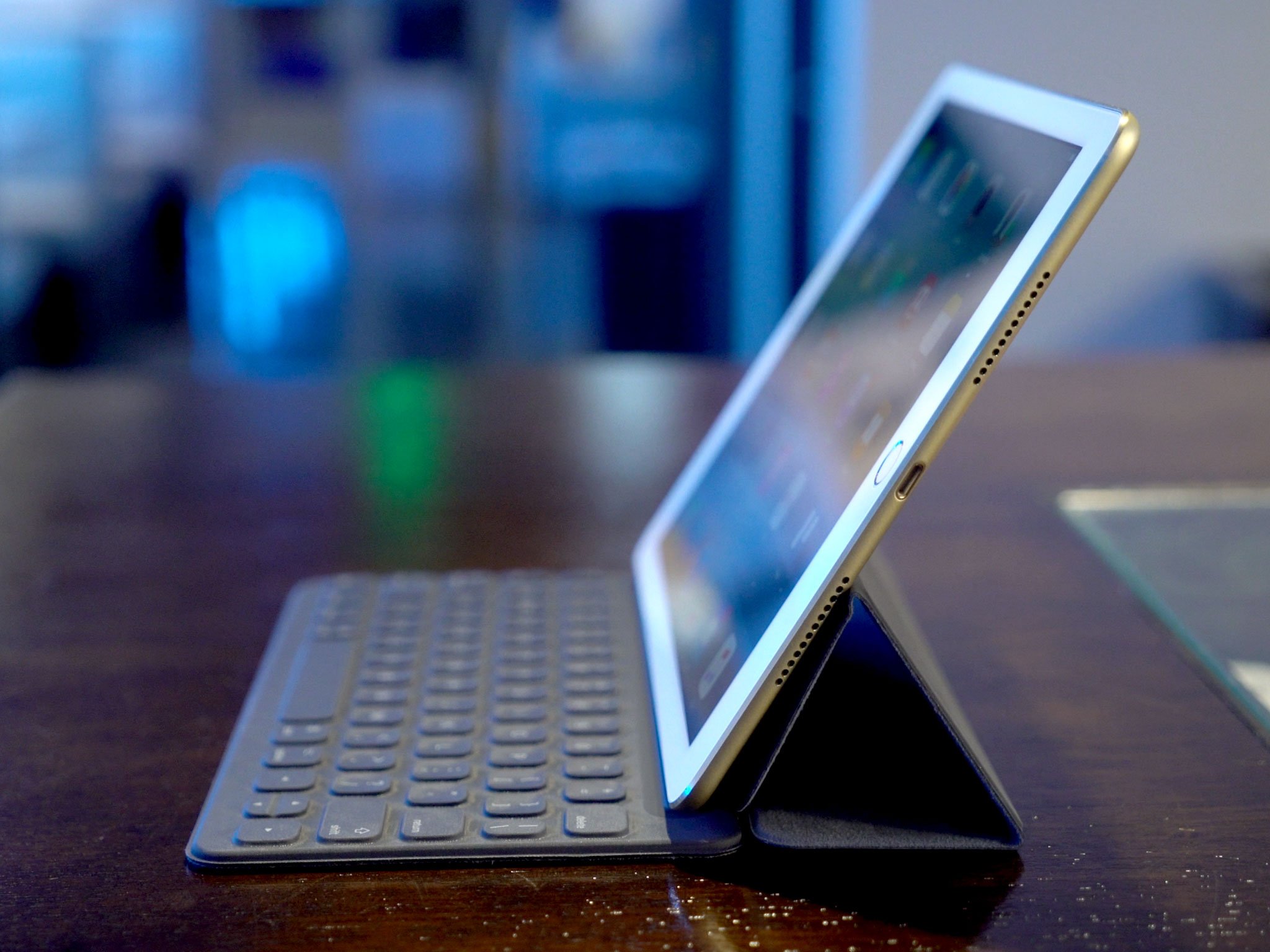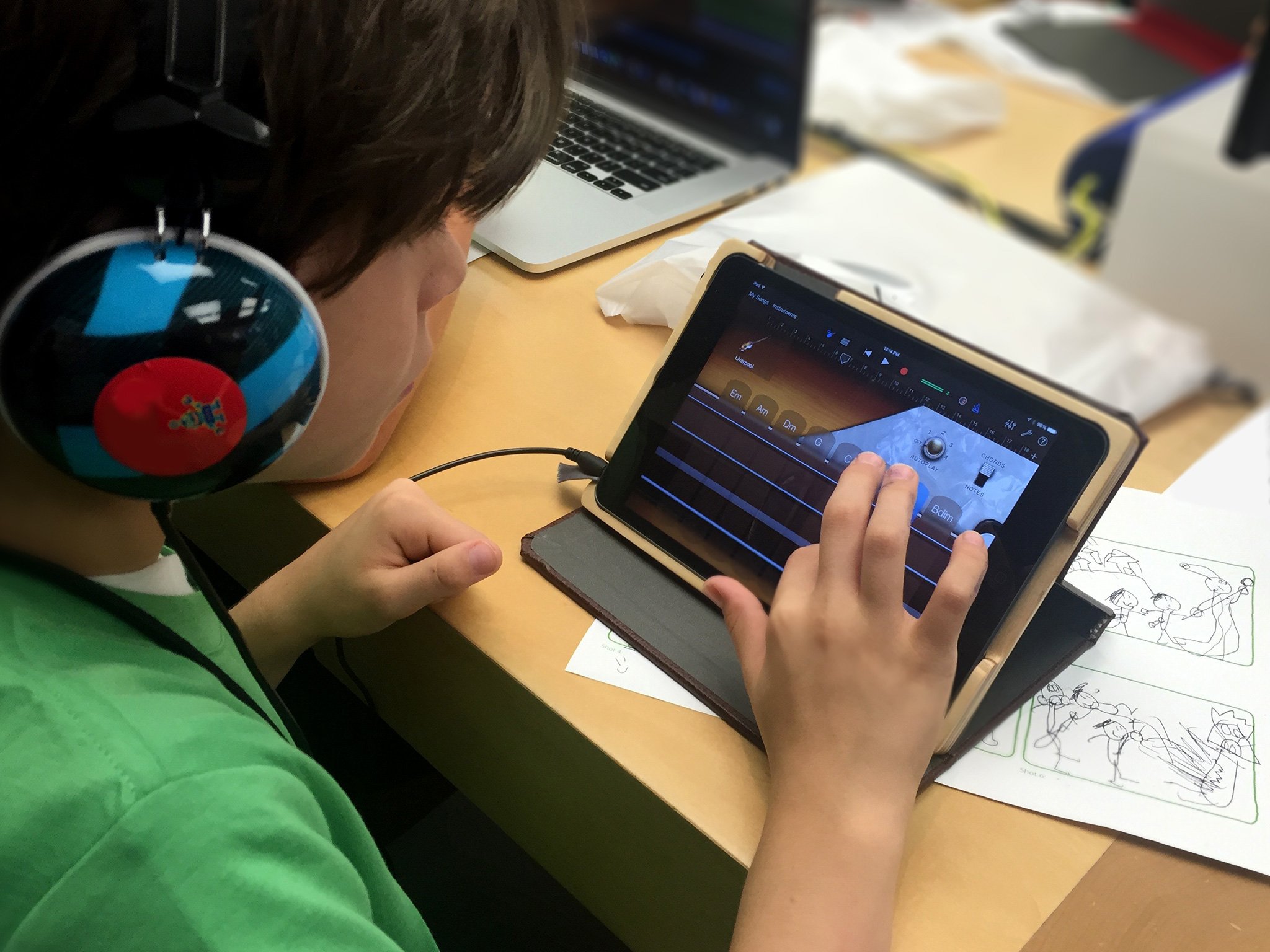Let iPad be iPad: Why making it a traditional computer isn't the answer

iMore offers spot-on advice and guidance from our team of experts, with decades of Apple device experience to lean on. Learn more with iMore!
You are now subscribed
Your newsletter sign-up was successful
iPad is a huge business. It sold 13 million units over the holidays. That's well over twice the 5.4 million Macs that were sold in the same quarter. It accounts for 85% of tablets priced over $200 and is a business big and profitable enough that every other company in the industry would give almost anything to own it themselves.
Yet, it's not growing. From breakneck acceleration coming out of its second year and a story compelling enough it got millions of people lining up to buy, to year-over-year declines in sales and no hint of a story on the horizon that might turn it all around.
It's led some in the industry to revert back to their roots in traditional computing and claim Apple needs to make the iPad "more capable" in order to make it more successful. As if by meeting the needs of the higher-end computing niche — needs already met by the Mac — will help iPad regain its mainstream appeal.
The iPad Market
From The iPad Market written right after Apple's Q1 2017 results:
That's what Steve Jobs meant when he called iPad the future of computing. His dream, and the consistent goal of Apple over the years, from Apple II to Mac to iMac to iPad, was mainstreaming computer technology. It's also why Jobs spoke of trucks and cars. iPad wasn't a PC, it was something that the majority of people would eventually find more practical than a full-on PC.iPad, at its core, made apps and the web accessible and approachable to people, young and old, who either couldn't, hadn't, or simply never enjoyed using a PC.It's why other vendors who tried to use "full desktop OS", multi-window multitasking, Flash, and other traditional computer paradigms to compete with iPad failed so spectacularly always. It's also why Windows on a tablet wasn't considered a selling point but a detriment. The mainstream didn't want it. They wanted iPad.That's why so many people not only bought an iPad 2, or one of the iPads since then, but have held onto it. It's not just as much computer as they needed, its as much computer as they wanted, and they'll use it until it breaks down and stops being usable.
iPad accelerated faster than any of Apple's previous products, including iPhone, so it hit its current speed limit faster as well. iPad has also proven capable enough and durable enough that, for its intended mainstream market, there's far less pressure to upgrade unless and until whatever version they last bought no longer works. And unlike iPhone with its camera, there hasn't yet been an iPad feature so compelling it drives more frequent upgrades.
So, we have a device that fits the needs of an incredibly large market so well it eats its own growth. How does Apple solve for that?
Not the Mac
It's tempting to suggest Apple fix iPad by making it more like Mac. Like most people in the tech industry, I secretly want every product to be for me. That's what leads to getting an iPad, trying to use it like a Mac, hitting a wall, feeling frustrated, hearing growth isn't going so well, and assuming the answer is to remove those walls and frustrations.
iMore offers spot-on advice and guidance from our team of experts, with decades of Apple device experience to lean on. Learn more with iMore!

And that's absolutely true... for thousands, maybe even millions of people. The ones already served by the Mac. Not for the tens of millions, maybe even hundreds of millions more for whom the Mac was never serviceable.
iPad's genius is that it's a digital canvas that can become anything to anyone, not just the same old thing for some of us. And it's oppositional to how and why iPad was created and released to begin with.
Doing things like adding Xcode for iPad, drag-and-drop between Split Views, Finder, Terminal, would be great for traditional computer users like me and mine, but it wouldn't move the needle for iPad. Except, potentially, backwards.
iPad's genius is that it's a digital canvas that can become anything to anyone, not just the same old thing for some of us.
At best it would appeal to only a small, existing market. At worst it would make iPad as alienating for the masses as the PCs and DOS-boxes were before it.
It also misses out on what makes iPad so... iPad. Moments like pulling off the keyboard on a plane so you can stop working and start watching. Easily traveling from coffee shop to meeting and back, not just working on designs but letting clients touch them. Taking your references onto the field, into the sky, or on a service run, whether or not you have an internet connection. Easing back into the couch and sketching the night away. Pulling your child onto your lap, tapping the presentation away, and helping them map the stars....
Only iPad
Apple's technical challenge is to keep increasing iPad's capabilities while making those capabilities either accessible to the mainstream, like Pencil or Playgrounds... or invisible. It's why I've written about iPadOS and an iPad designed not to be a Mac but as though there was no Mac — free of assumptions and traditional expectations.

Apple's marketing challenge is much harder. At some point, iPad upgrade cycles will be understood well enough, and its sales will begin to look Mac-enough, that the hot takes will chill out. And that's fine as far as it grows. But to deliver on the promise of being the computer for the rest of us — to return iPad to growth — Apple will need to do more.
Apple needs to show you what you can accomplish with iPad. Only iPad.
They'll need to sell it. Not as Mac alternative. Not by taking it to the depths of the ocean or the tops of mountains. Apple will need to sell iPad as iPad. They'll need to show how it can empower *everyone — your child, your grandparent, your business, your band, your teacher, your student, your family — you.
We've gotten moments of that before. iPad 2 was the best example with "We believe". Some of the less ostentatious, more relatable aspects of "Your Verse" hit on it as well. But it's never been sustained. It's never stuck on empowering the individual. On you. On me.
Apple needs to show you what you can accomplish with iPad. Only iPad.
It's the most personal computer Apple has ever made. Every iPad customer has a very personal story about how they use it and what it means to them. Many of those stories are inspiring.
Tell those stories.
My colleague, Serenity Caldwell, decided to start doing exactly that. See her new weekly column, The iPad Pros for more.

Rene Ritchie is one of the most respected Apple analysts in the business, reaching a combined audience of over 40 million readers a month. His YouTube channel, Vector, has over 90 thousand subscribers and 14 million views and his podcasts, including Debug, have been downloaded over 20 million times. He also regularly co-hosts MacBreak Weekly for the TWiT network and co-hosted CES Live! and Talk Mobile. Based in Montreal, Rene is a former director of product marketing, web developer, and graphic designer. He's authored several books and appeared on numerous television and radio segments to discuss Apple and the technology industry. When not working, he likes to cook, grapple, and spend time with his friends and family.
